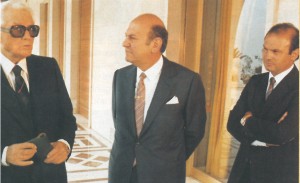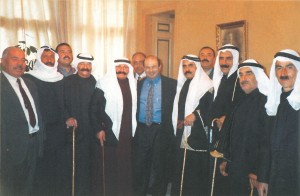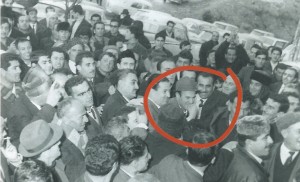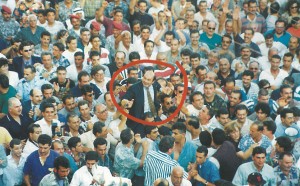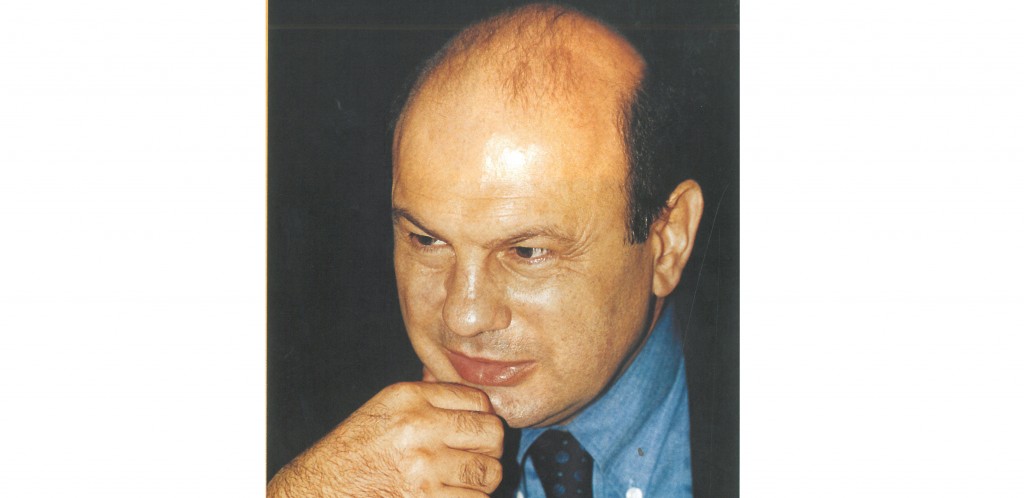In tribute to former deputy and minister Elie Skaff, Prestige reproduces an interview, where he tells about his uncommon life, how he was uprooted during his young age and his triumphal comeback to Zahle.
Prestige International July 1999
We met Myriam and Elie amidst the peace of their Yarze home for a chat full of warmth and spontaneity, in which their sincere and genuine personalities shone through.
Elie Skaff © Prestige
You both came from well-established political families from different parts of Lebanon. Can you tell us a little bit about yourselves and your family history? Elie: My life is a little confusing. I was born in one country, before spending a couple of years in Lebanon, then I went back to Cyprus, from Cyprus to Lebanon and from Lebanon to New Zealand where I spent 11 or 12 years. I finally returned to Lebanon in 1964. Because it’s a different culture to New Zealand, it took me a while to readjust and become part of Lebanese society. And at the beginning when I returned, I had to begin my life again almost from square one. I started secondary school from the beginning because I had to learn the language again and it wasn’t easy especially when you go from a latin language to the Arabic language.
Why did you come back at that time? I could write a whole book on the subject. My father had effectively lost me for fifteen years. My father had married my mother who was Greek but people with the old Lebanese mentality weren’t open to foreigners and his parents split my parents apart and my mother left for Cyprus where I was born. Shortly after my birth, my mother returned with me which made my father very happy but they didn’t get along so my mother took me to New Zealand where I lived until the age of fifteen. After my mother took me away to New Zealand my father went mad looking for us and hired private investigators to search for us all over the world without any luck until some people came to visit Lebanon from New Zealand and told my father that I was living in New Zealand. I eventually returned in 1964 just after my father had won the elections. There were big celebrations for his political success and when he spoke to those assembled for the celebrations he said:«I’m so happy today» and the people asked if it was because he had won the elections and he replied «No, but you’ll soon find out the reason,» as this was the time he was bringing back home from New Zealand. Actually there was a mix-up over the day I was supposed to arrive and I came a day earlier than my father expected. My mother always talked to me about my father and who my father was and when I got to the airport I found there was nobody there but the next day an enormous crowd of people turned out to welcome me at my father’s house. I was shocked by the number of people in Zahle who came to say hello and to meet me. People were even staring at me as at the time nobody travelled very much and it seemed strange to them that I had come from somewhere so far away. Later the war opened people’s minds as people started to emigrate more.
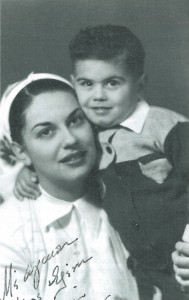
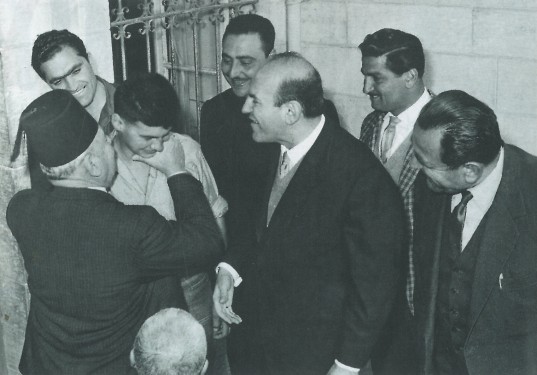
Did you find a big difference in the way of life here? What helps in my job is that I have a way of thinking that is similar to foreigners, which means that what’s black is black and what’s white is white. At the beginning when I first arrived it was difficult as I had been about to start a new life in New Zealand then when I came here that dream disappeared. I also found the language difficult. Eventually I finished school here and went to the AUB where I studied agricultural engineering which was a normal choice considering we owned a lot of land. I graduated from the AUB in 1975 but once again another dream was denied to me as I had wanted to start work but the war put a stop to that. At the same time I was being presented with my degree, war had already started.
Did you continue to see your mother? Yes. She remarried and I have four stepbrothers and sisters from that marriage and I also have two sisters Yasmina and Karina from my father’s third marriage.
How did you get into politics? My grandfather was in politics for thirty years and then my father took over at the age of eighteen and stayed in politics for fifty years. Firstly the language didn’t help me as you can’t have a political representative who can’t speak Arabic at a meeting and I also didn’t have the experience even though I had lived with my father nearly all my life. So when my father died in 1991, when I was forty, I went into politics even though this was the worst possible time as it was a period of transition for the country. I was very scared at first because I knew I had to continue my father’s work but at the same time I had no idea how to go about it. But I had to. The first elections that I went into took place in 1992. I received so much support on the one side from my father’s partisans who guided throughout it all yet at the same time there was also so much opposition. But this opposition only served to increase the support of the people for us. In fact, on our wedding day, despite the government ban on large groups of people gathering in the streets, even more people than expected came out in the streets, to welcome us as Myriam and myself returned to Zahle following our wedding ceremony.
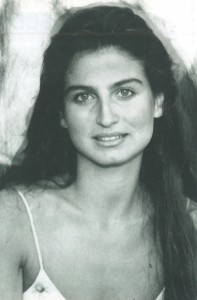

Since we’re talking about your wedding, how did you two meet? Myriam: My father held a lunch at Ayoun Urghush in the Bekaa to promote agriculture there. We were both present at the lunch and that’s how we met each other.
Myriam, what attracted you to Elie? His sweetness and his kindness, which were reflected in his face. And his down to earth quality. He was fun and understanding. I felt close to him and comfortable with him straight away.
And Elie, what was it that attracted you to Myriam? Myriam is not only beautiful, she’s intelligent and well brought up. There was pressure on me to get married and people kept asking me why I hadn’t married but I had never found the right person. Marriage is a lifetime commitment and finding the right person isn’t easy. So I kept looking until I found Myriam. Not every woman can put up with the life of a politician’s wife but fortunately her father was a politician so she already had an idea what to expect.
Myriam, do you contribute in any way to Elie’s political life? Yes, I’m very concerned by what goes on because I’m his lifetime companion and I have to support him in everything he does. We have the same goals. When I was younger I was a bit interested in politics but I had my own life and I left political responsibilities to my parents but my upbringing in politics was a preparation for what was ahead. Now, I go up to Zahle nearly every weekend with Elie. I welcome people into my home and try to organize their meetings with Elie and I listen to their problems and try and help them in any way I can.
Myriam, what was your parents reaction when you married a politician? They liked him so much. They thought that he would be good for me. And they were right because I feel totally fulfilled. Good communication, respect and how you treat each other are very important in a couple to make it work and I find that we have that.
